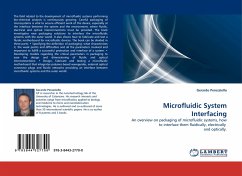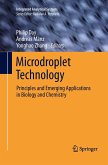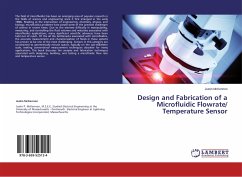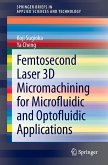MEMS (Micro-Electro-Mechanical-Systems) technologies
and micromachining techniques have been increasingly
employed in the integration of microfluidic devices
designed to automate the generation and analysis of
biomedical samples. Miniaturized devices for
electrophoresis separation and sensing mechanisms
have been successfully developed and provide such
benefits as lower sample consumption, higher
resolution, and improved detection speeds. However,
the sample pretreatment process still requires
significant time and effort. Therefore, an emerging
requirement exists to develop integrated
microfluidic systems for sample pretreatment operations such as cell culture monitoring, cell
lysis, DNA extraction, DNA/reagent mixing and DNA
amplification.
and micromachining techniques have been increasingly
employed in the integration of microfluidic devices
designed to automate the generation and analysis of
biomedical samples. Miniaturized devices for
electrophoresis separation and sensing mechanisms
have been successfully developed and provide such
benefits as lower sample consumption, higher
resolution, and improved detection speeds. However,
the sample pretreatment process still requires
significant time and effort. Therefore, an emerging
requirement exists to develop integrated
microfluidic systems for sample pretreatment operations such as cell culture monitoring, cell
lysis, DNA extraction, DNA/reagent mixing and DNA
amplification.








